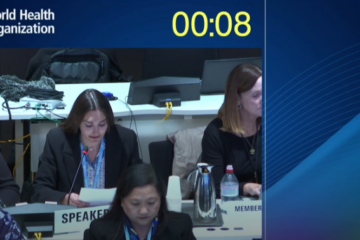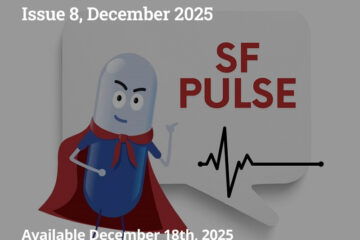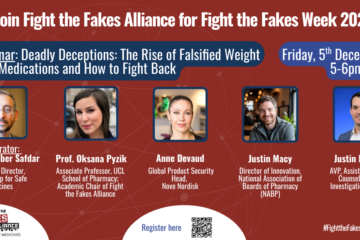On July 4, 2024, Swissinfo published an article on the growing problem of fake medicines on their front page. The article quotes a number of Fight the Fakes Alliance (FTFA) members including the International Federation of Pharmaceutical Manufacturers and Associations (IFPMA) and the Alliance itself.
The piece highlights that counterfeit drug sales have become one of the fastest-growing criminal enterprises in the world. It is estimated to be worth between USD$200 billion and USD$432 billion annually. There is also a wide range of existing counterfeit drug products from lifestyle drugs such as Viagra to falsified antibiotics and cancer therapies.
Some of these counterfeit drugs are comprised of harmful chemicals, but others may have inaccurate dosages or active ingredients. The repercussions of this can be perilous and deadly. Each year, the United Nations estimates that fake medicines kill over 500,000 people.
In 2010, Europe received a wake-up call when counterfeit versions of a cancer drug emerged in the United States and European markets. Since this incident, the EU has adopted the Medicrime Convention, created the EU Falsified Medicines Directive, and updated its verification system. The EU system has successfully reduced the number of counterfeit drugs on the market.
Despite the EU’s efforts, fake medicines are still widely available around the world, especially in developing countries that lack the infrastructure and funding to implement a similar system. Additionally, increased drug prices and shortage issues have created an ideal environment for the sale of counterfeit medicine. The COVID pandemic, trade barriers, manufacturing problems, the war in Ukraine, and the rise of online pharmacies have all exacerbated the issue.
“The rise of online pharmacies has made it much easier for counterfeit medications to reach consumers,” said Mario Ottiglio, Fight the Fakes Alliance.
Outside of the EU, the global response to counterfeit medicine has fallen short. While the WHO offers guidance and technical support, the organization does not have the capacity or pull to investigate cases or punish offenders. This is also true for pharmaceutical companies as they often don’t have the authority to hold falsifiers accountable. These challenges are major drivers for the growing prevalence of SF medicines despite increased efforts to combat the problem.
“We’re getting better at detecting falsified medicines through measures like improved traceability, but the problem isn’t diminishing,” said Cyntia Genolet, IFPMA
Ultimately, there is a need for better international coordination and action to combat counterfeit medicine as the problem of falsified medicines is only growing. The problem of SF medicines is not going away, so join us in the fight to ensure that individuals around the world are protected against substandard and falsified medicines and have access to affordable, high-quality, and safe medical products.
The full Swissinfo article can be accessed here.


